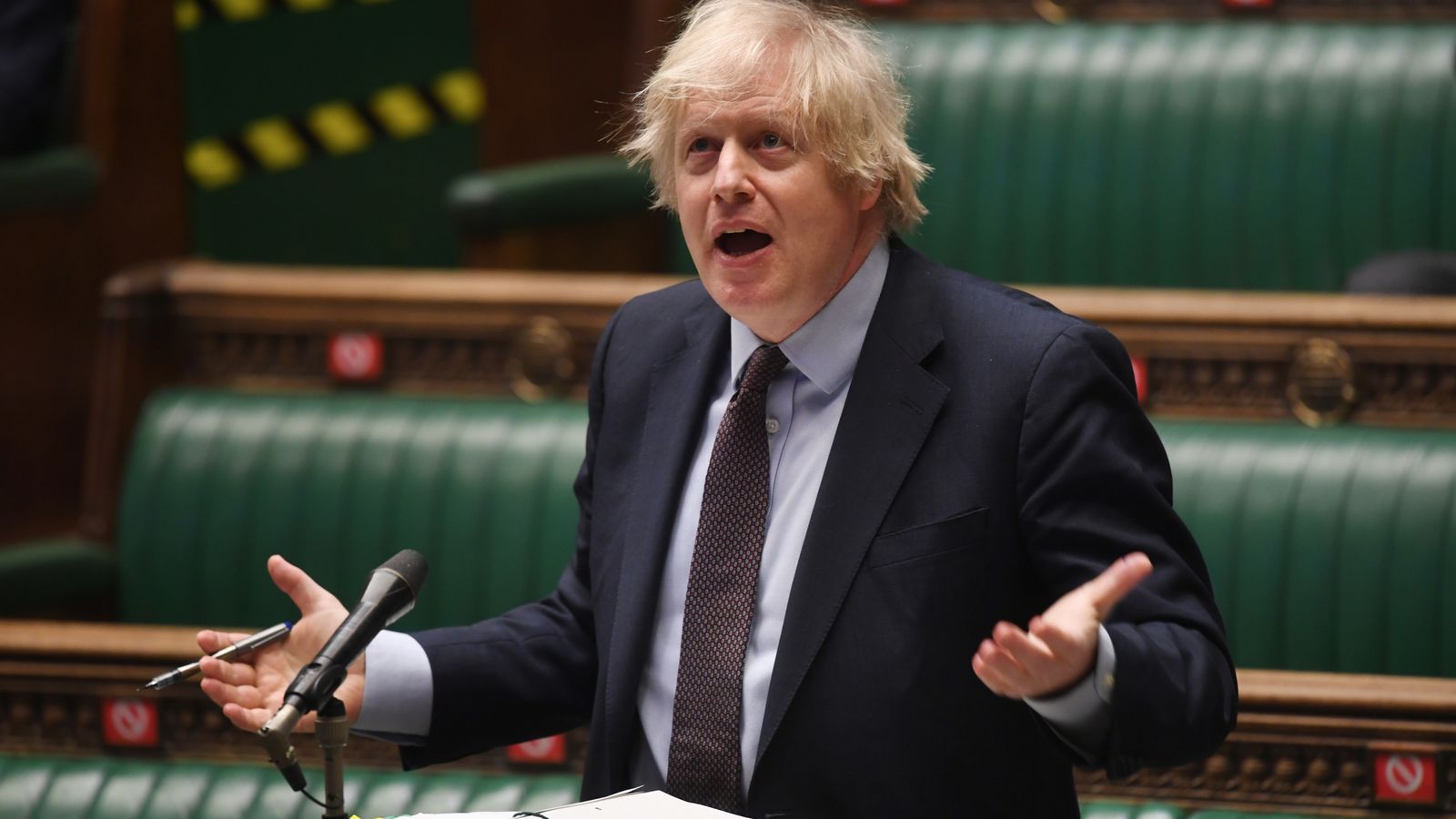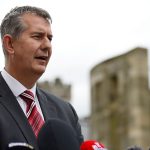Leaders of six minor parties in the House of Commons are calling on the Speaker to allow a vote on a call for an inquiry into Boris Johnson’s “lack of truthfulness” in parliament.
The MPs, including the Green Party’s MP Caroline Lucas and the Liberal Democrat, SNP and Plaid Cymru leaders, are accusing the prime minister of a “consistent failure to be honest with the facts”.
In a letter to the Speaker, Sir Lindsay Hoyle, they give six examples of statements they claim were untrue and have asked for the go-ahead to table a motion referring their complaint to the Committee of Privileges.
The Labour leader, Sir Keir Starmer, was invited to sign the letter, but according to a Labour source he declined because Labour does not normally sign up to initiatives launched by other opposition parties.
Besides Ms Lucas, who organised the move, the letter is signed by the Lib Dems’ Sir Ed Davey, the SNP’s Ian Blackford, Liz Saville Roberts of Plaid Cymru, Colum Eastwood of the SDLP, and Stephen Farry of the Alliance Party.
“We write as leaders of our parties in the House of Commons to express our deep concern that the standing and reputation of the House is being endangered by the lack of truthfulness in statements by the prime minister,” the MPs said.
“As you will know, one of the Nolan principles is that holders of public office should be truthful. It is also set out in the ministerial code. We believe the prime minister consistently fails to meet this standard.
“This is not a question of occasional inaccuracies or a misleading use of figures: it is a consistent failure to be honest with the facts, or to correct wrong information at the earliest opportunity when misleading information is given.
“This, we believe, amounts to a contempt of the House.”
Responding to the letter, a government spokesperson merely said: “The prime minister follows the ministerial code.”
The Speaker’s office said it does not comment on private correspondence with MPs.
In their letter, the MPs stated these examples:
• “29 January 2020: At Prime Minister’s Questions, Mr Johnson said: “The economy under this Conservative government has grown by 73%”. The truth is that under Conservative-led governments since 2010, the UK’s GDP has grown by around 20%. The higher figure refers to economic growth since 1990, which includes 13 years of Labour governments.”
• “5 February 2020: At PMQs, the prime minister repeated this falsehood about economic growth and added another: “We have cut CO2 emissions in this country since 2010, on 1990 levels, by 42%. That is an astonishing achievement, and at the same time, the economy has grown by 73%”. The reality is the decline of about 38% in CO2 emissions has happened since 1990, not 2010.”
• “4 March 2020: At PMQs, the prime minister said: “We have restored the nurses’ bursary”. This is at best highly misleading. Student nurses were awarded a £5,000 maintenance grant, but still have to pay tuition fees which they did not under the nurses’ bursary.”
• “17 June 2020: At PMQs, the prime minister said: “There are hundreds of thousands, I think 400,000, fewer families living in poverty now than there were in 2010″. Again, this is not true as was made clear by the Children’s Commissioner and the Office for Statistics Regulation. Yet there has been no retraction or apology to the House from the prime minister.”
• “10 February 2021: At PMQs, the prime minister said that Bridgend was “going to be the one of the great centres of battery manufacturing in this country if not the world”. Another false claim with no retraction.”
• “22 February 2021: In reply to a question about the details of COVID-related contracts, the prime minister said: “As for the contracts that the Honourable Lady just mentioned, all the details are on the record”. Again, this was untrue and directly contradicted a High Court ruling which found that the government was in breach of the law for not putting everything on the record.”
Subscribe to Sophy Ridge on Sunday on Apple Podcasts, Google Podcasts, Spotify, Spreaker
The MPs also quoted a statement by Sir Lindsay in the Commons on 1 March, when he said: “It is of paramount importance that ministers give accurate and truthful information to parliament, correcting any inadvertent error at the earliest opportunity.”
The party leaders added in their letter: “In the prime minister’s case, this is not happening.
“In recent decades, political scandals like cash-for-questions and MPs’ expenses not only undermined the standing of parliament as a whole, they also eroded confidence in our democracy.
“We believe the failure of the prime minister to be honest in his statements to the Commons risks doing similar damage.”
Under strict parliamentary rules that assume all MPs are “honourable members”, it is not permitted for MPs to accuse opponents of lying, or even “wilfully misleading the House”.
The closest MPs can get to an accusation of being untruthful is “inadvertently misleading the House”.






















